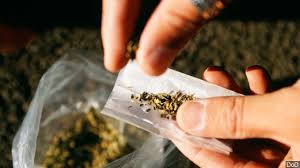PROPOSAL SENT TO FEDERALLY RECLASSIFY MARIJUANA AS SCHEDULE 3 DRUG
News 9 - September 5, 2023 6:21 am

Currently, marijuana is a Schedule 1 drug and on the level with heroin and methamphetamine. But, the proposal asks the DEA to reclassify it as Schedule 3 — still illegal and restricted — but on level with anabolic steroids or ketamine.
A proposal from the U.S. Department of Health and Human Services has asked the Drug Enforcement Agency to reclassify marijuana, according to a post from HHS Secretary Xavier Becerra.
Currently, marijuana is a Schedule 1 drug and on the level with heroin and methamphetamine. But, the proposal asks the DEA to reclassify it as Schedule 3 — still illegal and restricted — but on level with anabolic steroids or ketamine.
Oklahoma attorney Kyle Davis represents clients in the state’s medical marijuana industry. He said if a change is made, one difference would be the federal recognition of the medicinal value of marijuana.
“Schedule 1 is sort of what you would call the worst drugs,” he said. “Drugs that have, by definition, no medicinal value, and are high potency or have the potential for abuse.”
A rule passed at the federal level wouldn’t change much for Oklahoma’s consumers. But, it would create changes for researchers and marijuana business owners.
Currently, researchers have to step through an extensive approval process to work with Schedule 1 drugs. According to Davis, it would also open up tax benefits for businesses.
“If you are trafficking in schedule 1 or schedule 2 drugs, you [aren’t] able to write off normal business expense,” he said.
The proposal still must undergo a review process by the DEA, which ultimately has the final say on whether to reclassify the drug.
Part of that review will ultimately include an opportunity for public comment, where supporters or opponents can send in feedback. Typically, public comment for similar issues is taken through www.regulations.gov, but a webpage for this issue was not available by the time this article was published.
National critics shared their opposition with the Associated Press, claiming in one example that rescheduling the drug would ultimately create more confusion because marijuana would still be illegal.


